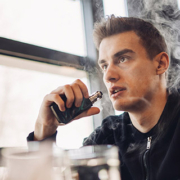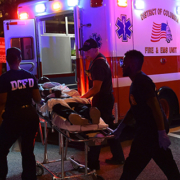Overcoming the Stigma of Psychiatric Medication
Introduction
The stigma surrounding psychiatric medication is a pervasive issue that often goes unnoticed, yet its consequences are profound.
In a society where mental health struggles are still stigmatized, individuals prescribed psychiatric medication often find themselves facing judgment, discrimination, and societal pressure to “suffer in silence.” The stigma surrounding psychiatric medication arises from misconceptions about mental illness and treatment.
Lack of awareness perpetuates these stigmas, fostering shame and secrecy. Consequently, individuals may delay or avoid seeking treatment, fearing being labeled as “mentally ill” or “dependent on medication.”

“Addressing the pervasive stigma surrounding psychiatric medication.”
The Burden of Stigma
Stigma surrounding psychiatric medication stems from deeply ingrained misconceptions and stereotypes about mental illness and treatment. Society’s lack of awareness and education on mental health issues perpetuates these stigmas, leading to a culture of shame and secrecy surrounding psychiatric medication usage. As a result, individuals who could benefit from treatment often delay or avoid seeking help altogether, fearing the repercussions of being labeled as “mentally ill” or “dependent on medication.”
Consequences of Silence
The reluctance to discuss mental health struggles and medication usage leads to significant consequences for individuals and society as a whole. Without proper .Addressing the pervasive stigma surrounding psychiatric medication.”, individuals may experience worsening symptoms, decreased quality of life, and even life-threatening situations. The silence surrounding psychiatric medication also reinforces the misconception that mental illness is a personal weakness rather than a legitimate medical condition, further perpetuating stigma and hindering progress towards destigmatization.

“Consequences of silence: The impact of stigma on mental health and treatment.”
Barriers to Treatment
Stigma creates barriers to accessing mental health care and treatment, particularly for marginalized communities. Discrimination based on mental health status can result in individuals being denied employment, housing, or healthcare services. Moreover, the fear of judgment from friends, family, or healthcare providers may prevent individuals from seeking help when they need it most, exacerbating their suffering and perpetuating cycles of untreated mental illness.
Changing the Narrative
It’s crucial to challenge the narrative surrounding psychiatric medication and mental health treatment. Instead of viewing medication as a crutch or a sign of weakness, we must recognize it as a legitimate and effective tool for managing mental illness. Education plays a vital role in dispelling myths and misconceptions about psychiatric medication, empowering individuals to make informed decisions about their mental health care without fear of judgment or shame.

“Breaking down barriers: Addressing stigma in mental health treatment.”
Empowering Individuals to Speak Up
Creating a supportive and inclusive environment where individuals feel comfortable discussing their mental health struggles and treatment experiences is essential. By empowering individuals to speak up and share their stories, we can break down barriers and foster a culture of acceptance and understanding. Peer support groups, advocacy organizations, and mental health campaigns all play a crucial role in amplifying voices and challenging stigma.
Promoting Compassionate Care
Healthcare providers also have a responsibility to combat stigma and provide compassionate care to individuals seeking mental health treatment. This involves actively listening to patients, validating their experiences, and offering nonjudgmental support and guidance. Treating mental illness with compassion and respect reduces stigma.It encourages more individuals to seek help.
Healthcare providers play a crucial role in this effort.

“Empowering individuals to speak up and promoting compassionate care in mental health.”
Conclusion
The stigma surrounding psychiatric medication serves as a barrier to mental health treatment.
It perpetuates suffering and silence among those in need.
It’s time to challenge outdated beliefs and stereotypes about mental illness and medication usage.
We must foster a culture of acceptance, understanding, and support.
By amplifying voices, promoting education, and advocating for compassionate care.
We can break down barriers and create a more inclusive and supportive society for all.
















